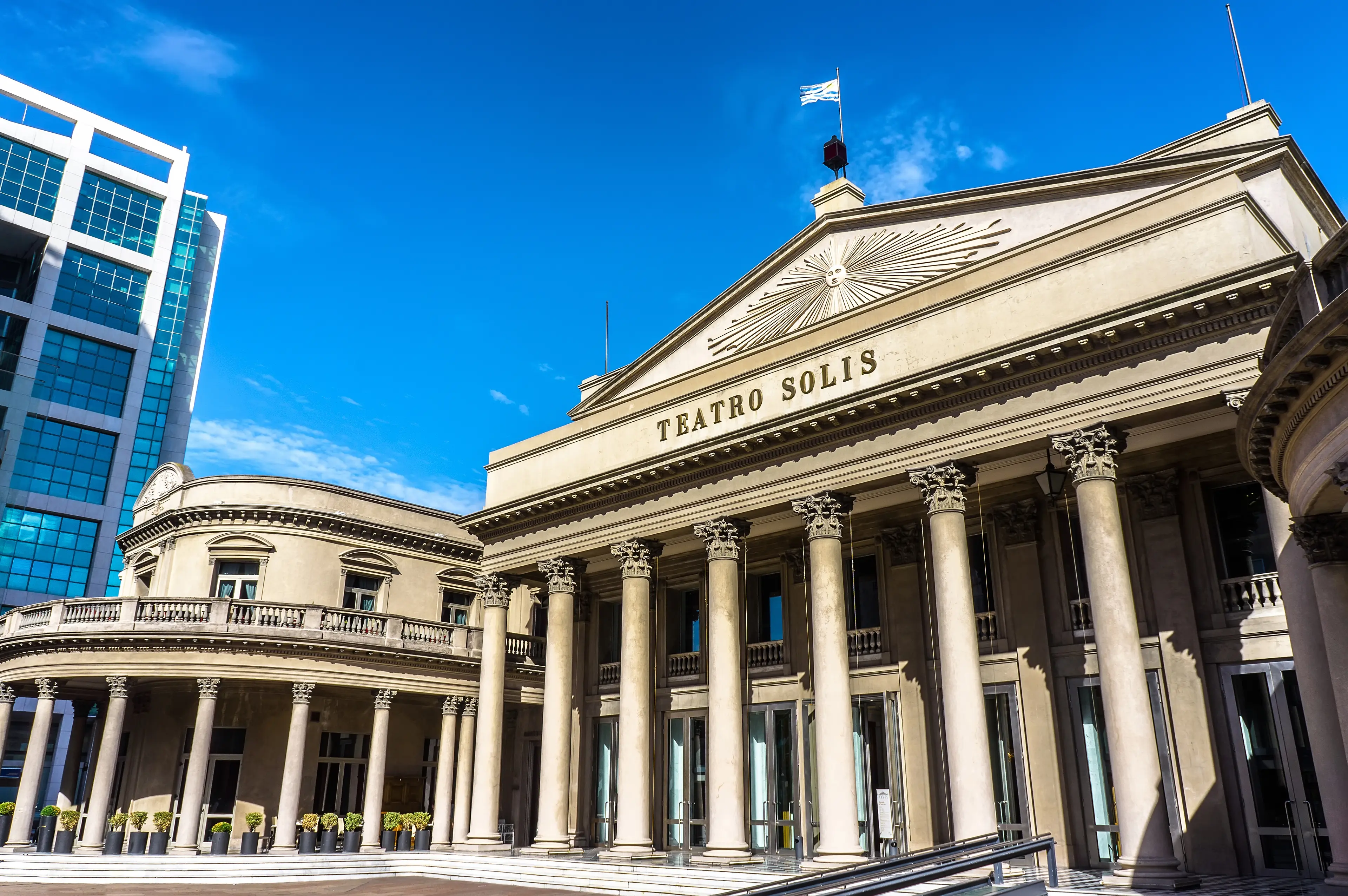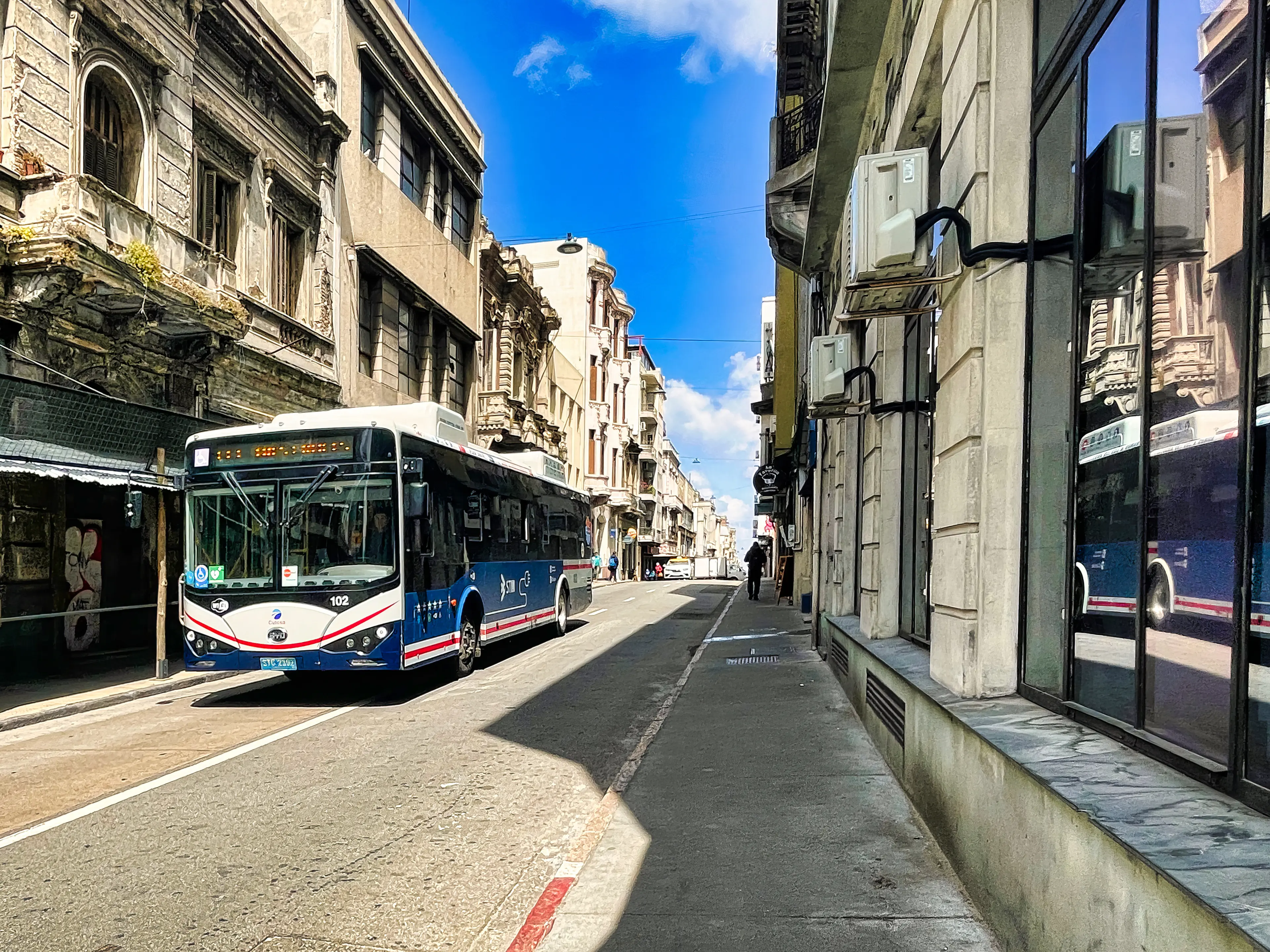3-Day Adventurous Couple's Getaway: Montevideo's Hidden Gems & Nightlife
Montevideo, Uruguay
3 days
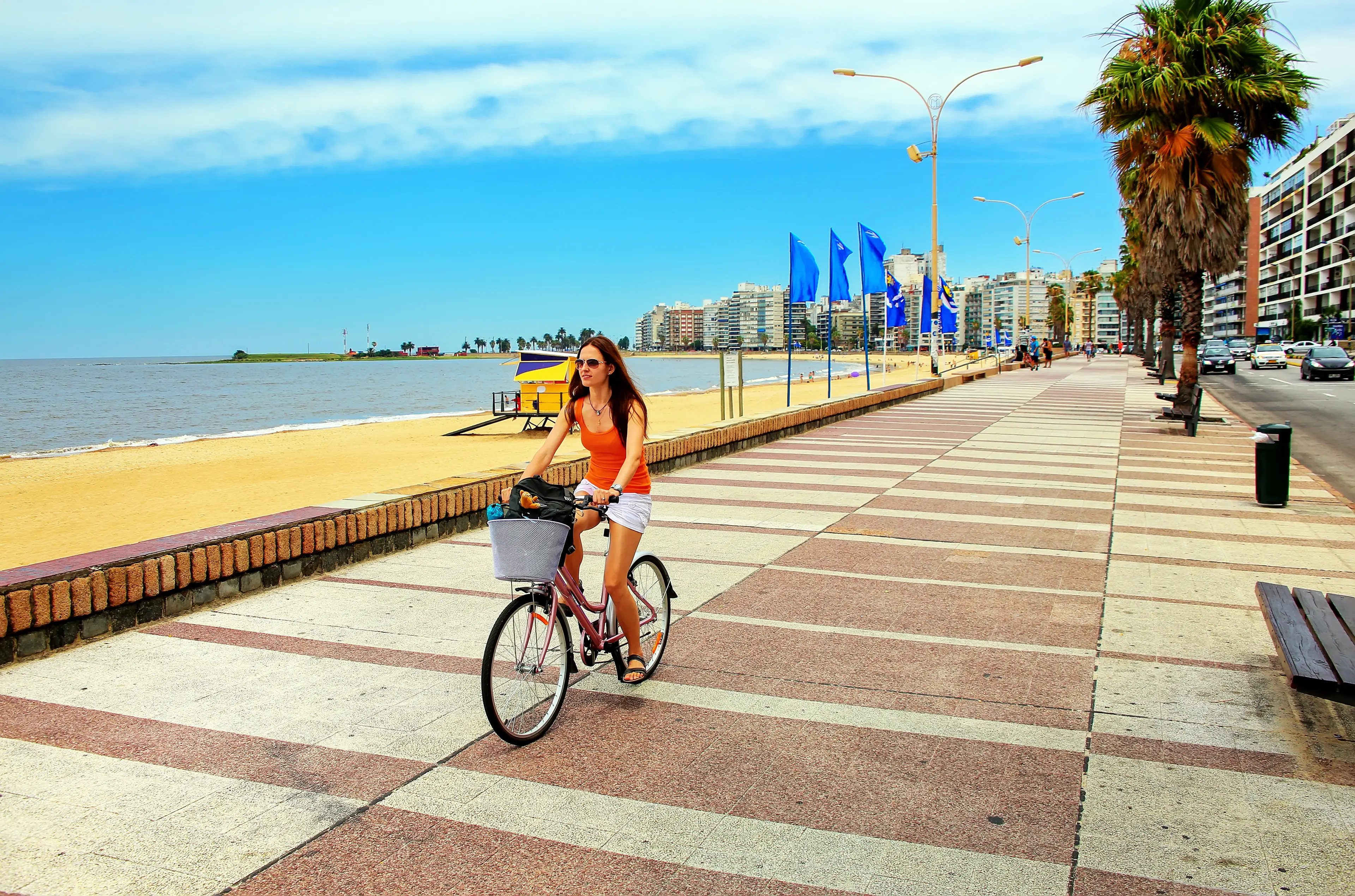

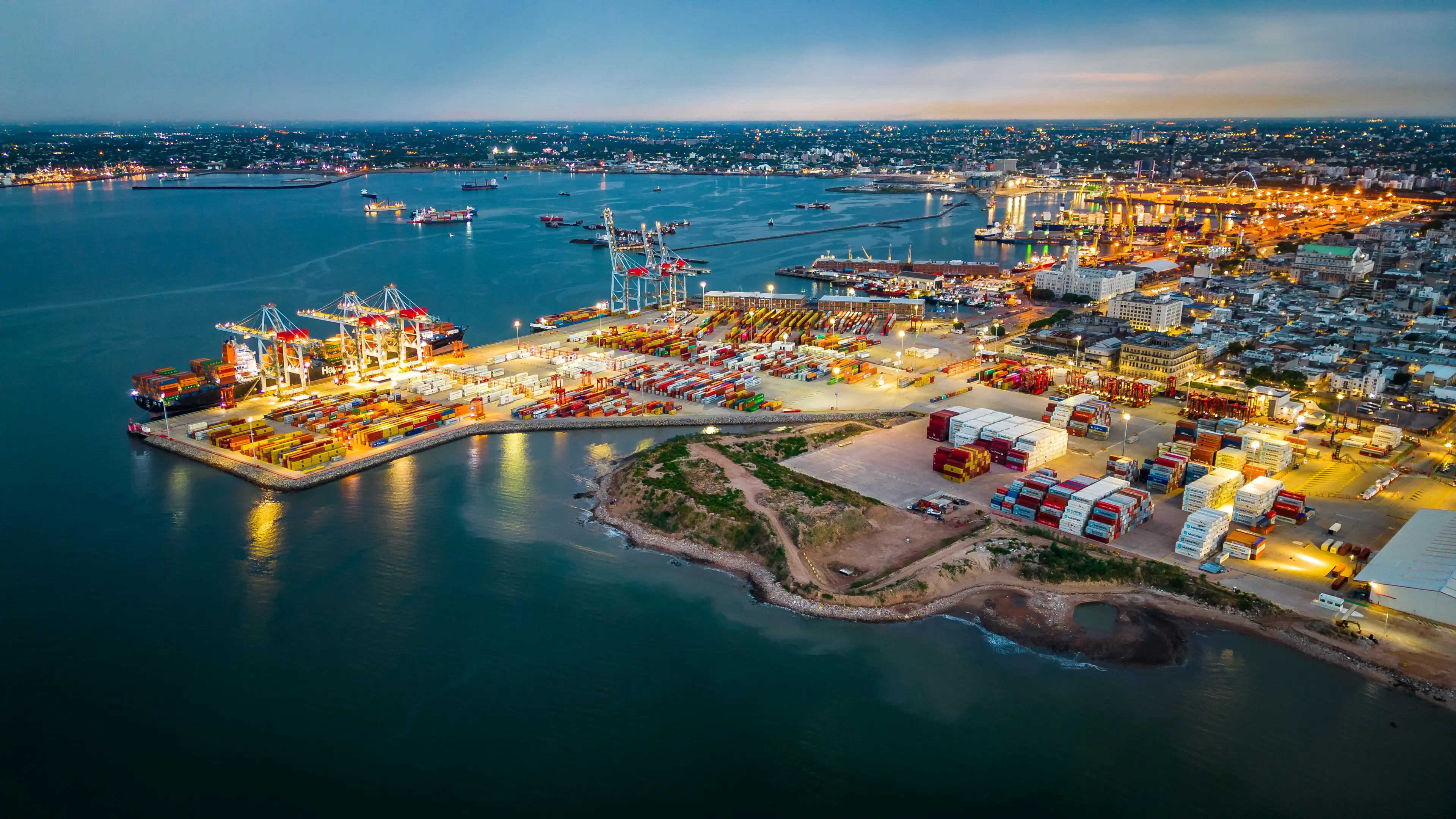
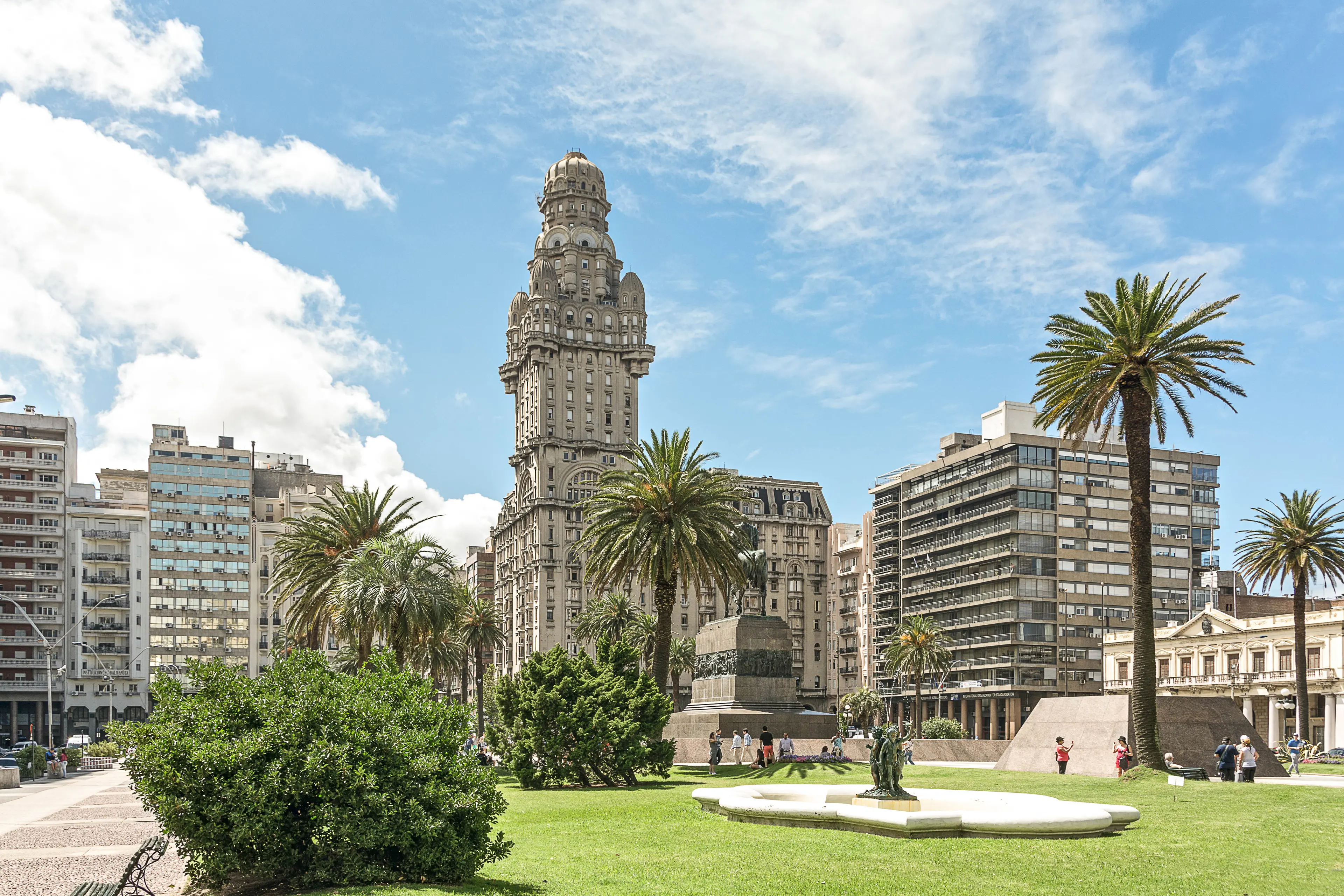
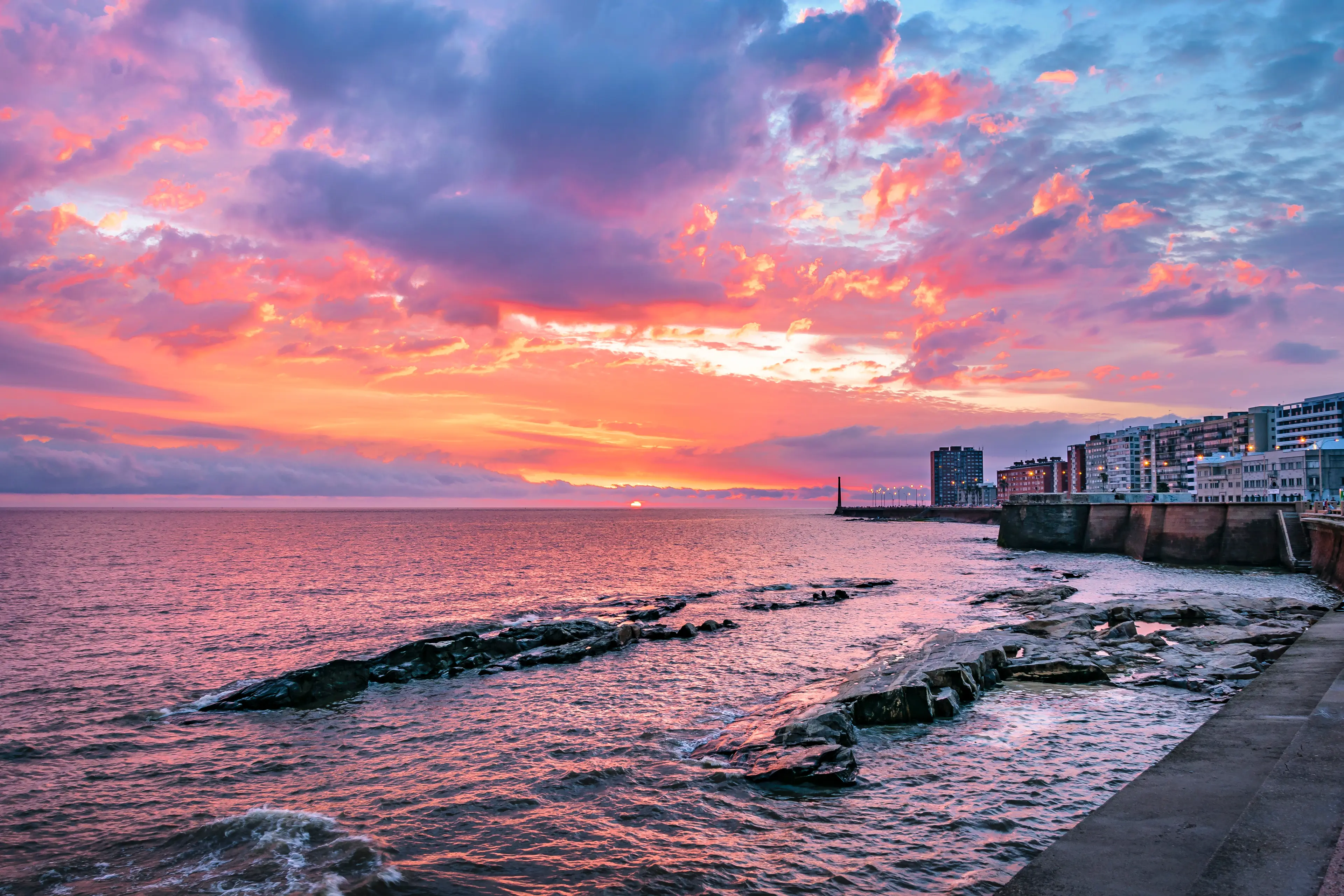
About Montevideo, Uruguay
Experience the vibrant culture and rich history of Montevideo, Uruguay's capital city. This coastal gem offers a blend of neoclassical architecture, picturesque beaches, and lively markets. Visit the Ciudad Vieja (Old Town) with its charming colonial buildings, or the iconic Palacio Salvo, a symbol of the city's skyline. Stroll along the Rambla, a waterfront promenade, and enjoy local cuisine at Mercado del Puerto. Explore the city's numerous museums, galleries, and theaters for a taste of its thriving arts scene. Don't miss the Parque Rodó, a beautiful park that also hosts a bustling carnival during February. Montevideo offers a unique blend of tranquility and urban excitement, making it an unforgettable destination.
3-Day Itinerary
Day 2
Discovering Montevideo's Historic and Cultural Gems
Morning
Begin your second day with a visit to the Fortaleza del Cerro, a historic fort that offers stunning views of the city and the sea.
Lunch
Enjoy a picnic lunch at the Parque Prado, a beautiful park filled with lush greenery, rose gardens, and a variety of bird species.
Afternoon
In the afternoon, explore the Barrio Reus, a colorful neighborhood known for its unique architecture and vibrant street art.
Dinner
For dinner, try 'pasta al horno', a popular Uruguayan dish made with pasta, cheese, and tomato sauce. It's a hearty and delicious meal that will leave you satisfied.
Evening
End your day with a visit to a local 'candombe' performance, a traditional Afro-Uruguayan music and dance that is a key part of the country's cultural heritage.
Day 3
Relaxing at the Beach and Enjoying the Local Nightlife
Morning
Start your final day with a visit to the Parque Rodó, a large park that offers a variety of activities, including paddle boating, mini golf, and a small amusement park.
Lunch
Enjoy a seafood lunch at a local 'marisquería'. These seafood restaurants serve a variety of dishes, including fish, shrimp, and squid, all fresh from the sea.
Afternoon
Spend the afternoon at the Playa de los Pocitos, a beautiful beach that is perfect for sunbathing, swimming, or simply relaxing with a good book.
Dinner
For your final dinner, try 'asado', a traditional Uruguayan barbecue. It's a fitting end to your culinary journey through Montevideo.
Evening
End your trip with a visit to a local Peña, a social club where you can enjoy live music, dance, and socialize with locals. It's a great way to experience the vibrant nightlife of Montevideo.
Attractions in Itinerary (10)

1Mercado del Puerto
A bustling market filled with a variety of food stalls, restaurants, and shops selling local crafts and souvenirs.

2Rambla
A long waterfront promenade that stretches along the coastline of Montevideo, offering beautiful views of the sea.
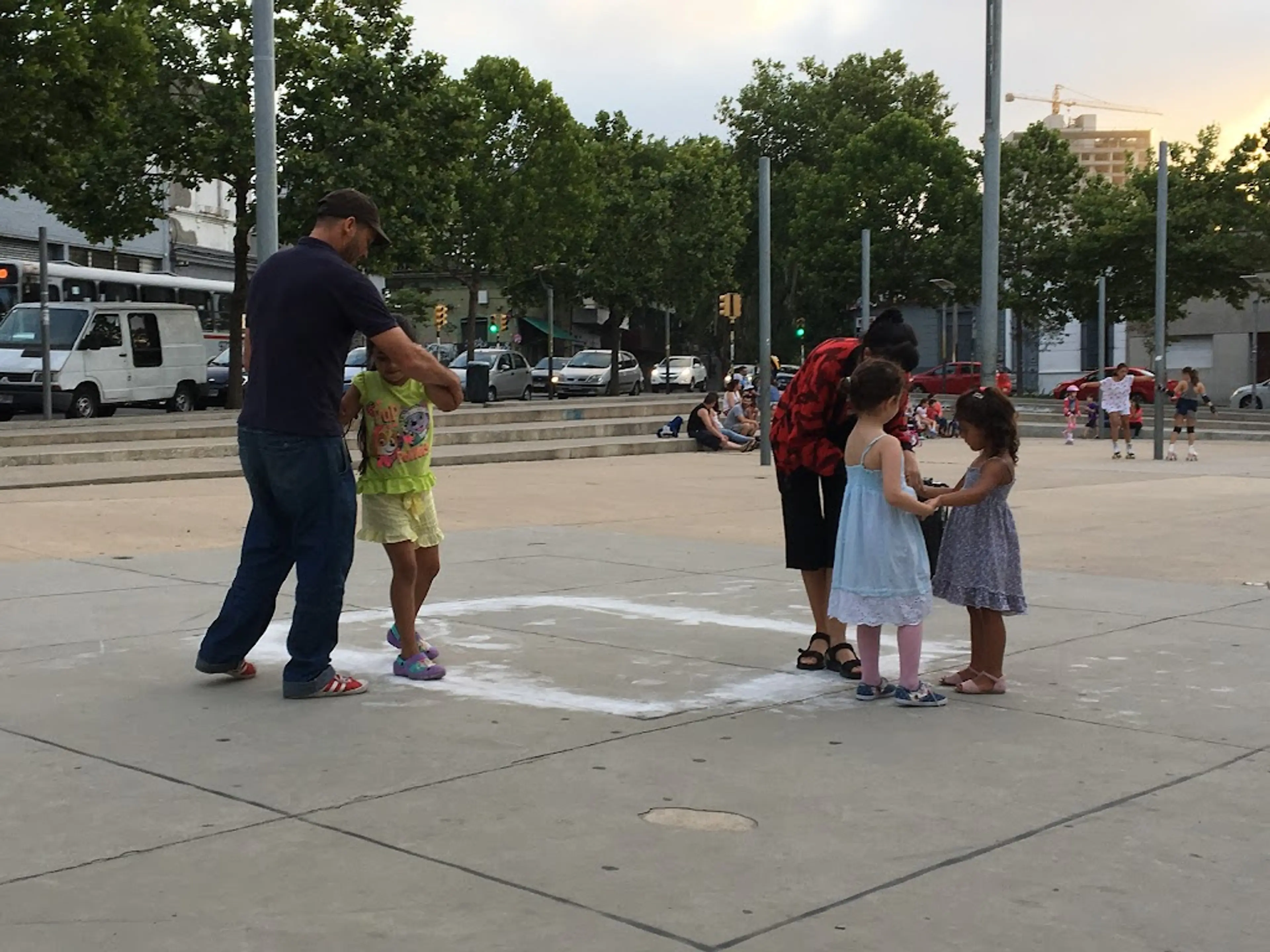
3Milonga
A traditional form of dance and music, Milonga is a popular cultural experience in Uruguay. It's a faster-paced version of tango and a must-see for any visitor to Montevideo.

4Fortaleza del Cerro
A historic fortress located on the highest hill in Montevideo, offering panoramic views of the city and the bay.
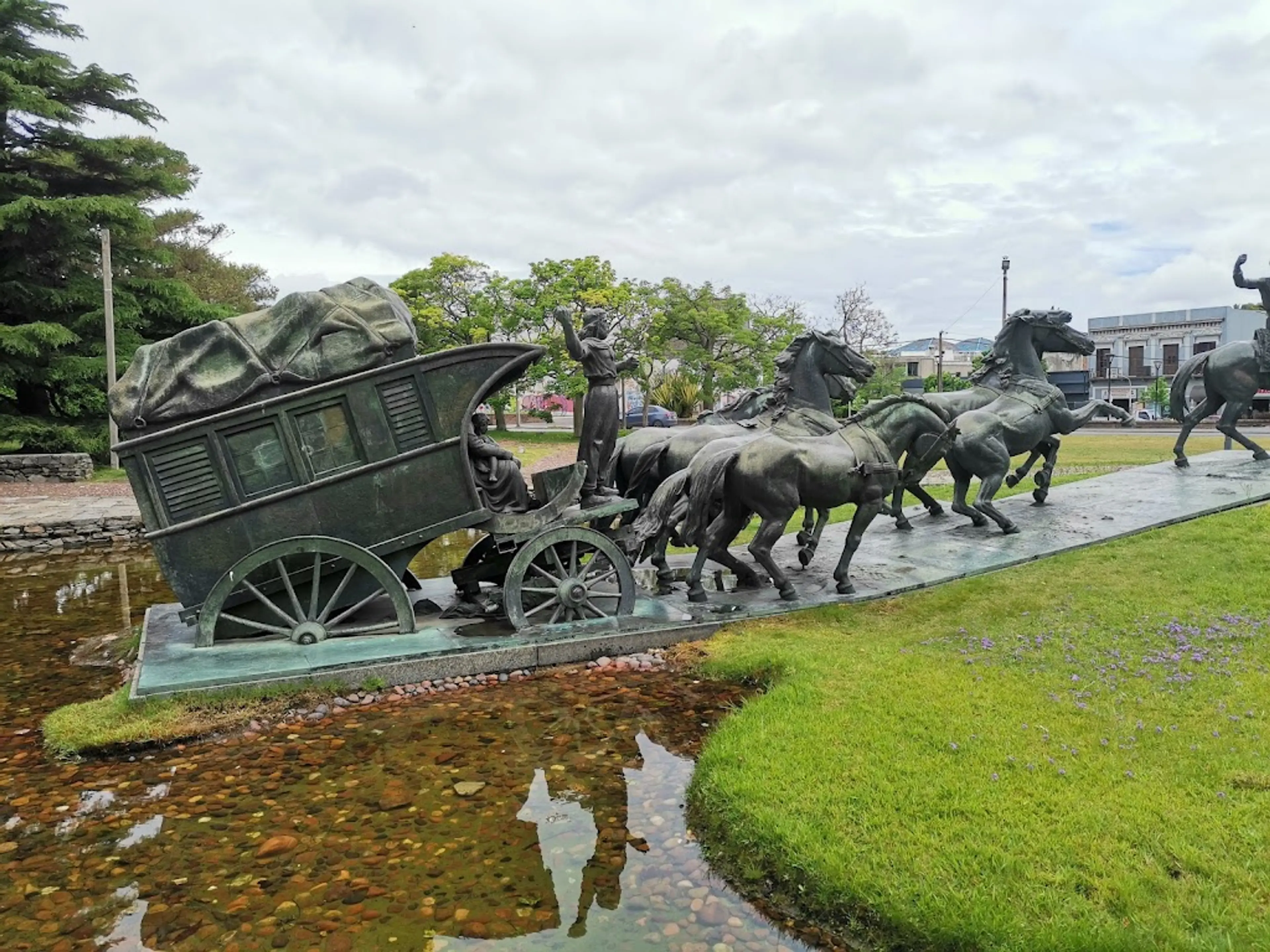
5Parque Prado
The largest park in Montevideo, featuring beautiful gardens, monuments, and a rose garden.
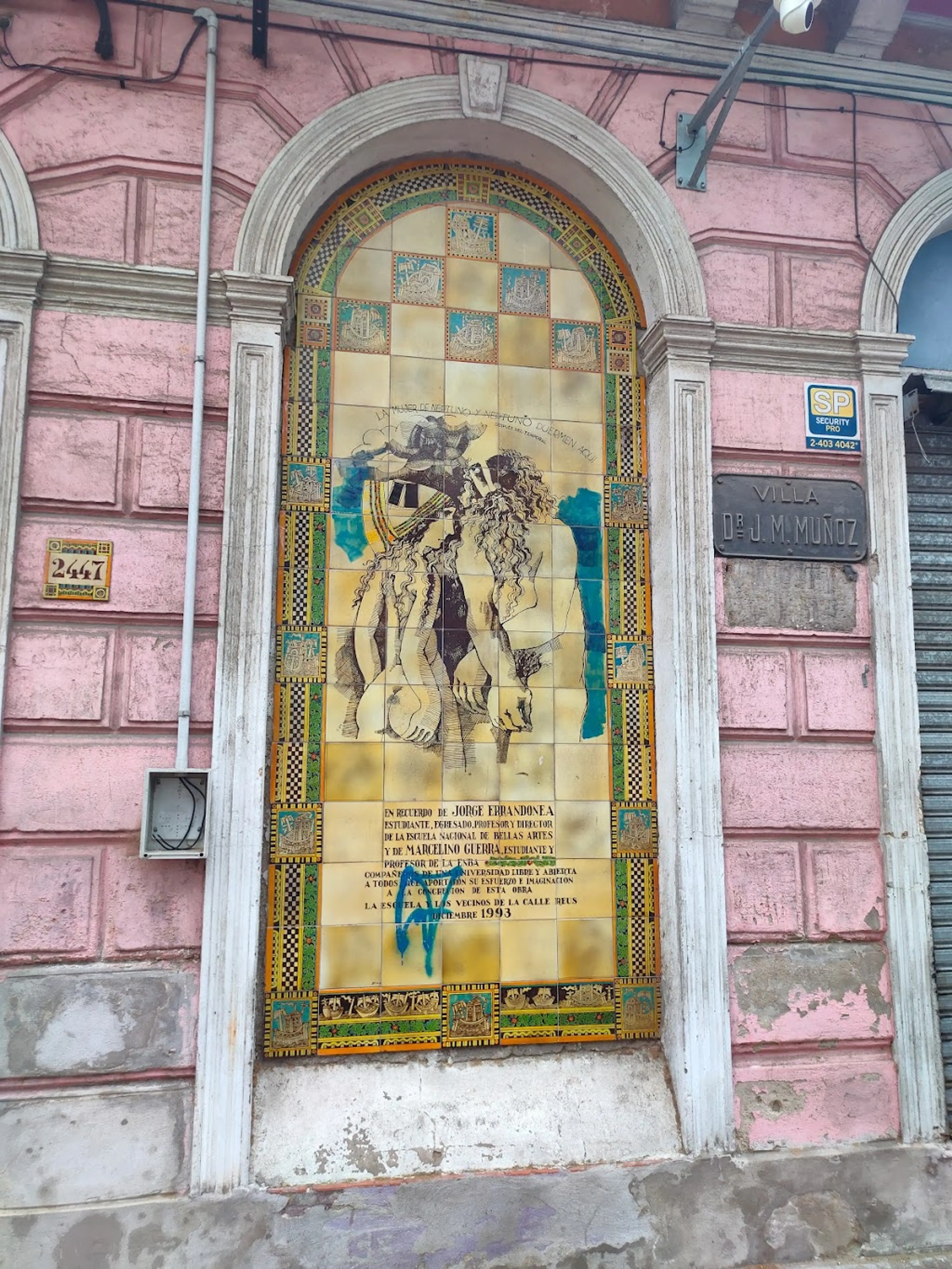
6Barrio Reus
Barrio Reus is a neighborhood in Montevideo known for its unique architecture. The area is filled with colorful houses and buildings, making it a popular spot for tourists and locals alike.

7Parque Rodó
A large urban park that offers a variety of recreational activities, including a lake, a castle, and an amusement park.

8Playa de los Pocitos
Playa de los Pocitos is a popular beach in Montevideo, known for its golden sands and clear waters. It's a favorite spot for locals and tourists alike, offering a variety of water sports and beach activities.
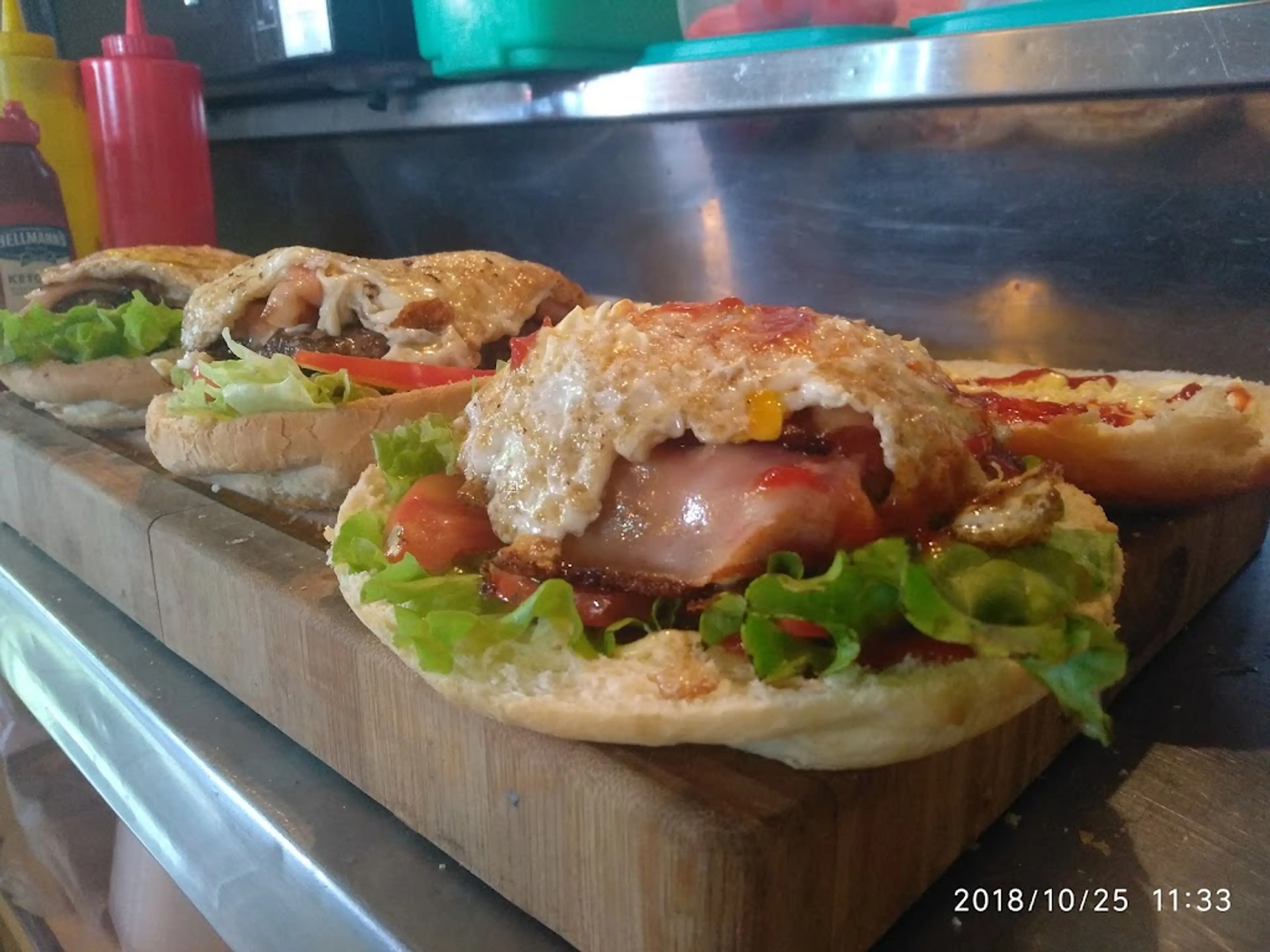
9Peña
A Peña is a traditional gathering place where locals come to eat, drink, and enjoy folk music. It's a great way to experience the local culture and cuisine of Montevideo.
10Candombe Performance
Candombe is a traditional Uruguayan music and dance that originated with African slaves. Performances are a common sight in Montevideo, especially during the Carnival season.
Local Food and Drinks (12)

Chivito
Chivito is a traditional Uruguayan sandwich that is often considered the national dish. It is made with a thin slice of tender cooked beef steak, which may be topped with mozzarella, tomatoes, mayonnaise, black or green olives, and commonly also bacon, fried or hard-boiled eggs and ham. It is served in a bun, often with a side of French fries.

Asado
Asado is a type of barbecue that is extremely popular in Uruguay. It typically consists of beef ribs, sausages, and sometimes other meats, which are cooked on a parrilla, or grill. The meat is often accompanied by chimichurri, a sauce made of chopped parsley, minced garlic, vegetable oil, oregano, and white or red vinegar.

Empanada
Empanada is a type of pastry that is popular in many Latin American countries, including Uruguay. It is made by folding dough over a filling, which may include meat, cheese, corn, or other ingredients, and then baking or frying the result.

Milanesa
Milanesa is a breaded meat fillet, similar to a schnitzel, that is a common main course in Uruguay. It is typically made with beef or chicken, which is dipped in beaten eggs, coated with bread crumbs, and then fried.

Pascualina
Pascualina is a traditional Uruguayan pie that is typically filled with spinach and hard-boiled eggs. It is often eaten during Lent, but can be found year-round.

Medio y Medio
Medio y Medio, which translates to 'half and half', is a popular Uruguayan drink that is a mix of sparkling wine and white wine. It is often served as an aperitif.

Pasta Frola
Pasta Frola is a traditional Uruguayan dessert that is similar to a tart. It is made with a sweet pastry crust and filled with quince jam, although other fillings like sweet potato or dulce de leche are also used.

Dulce de Leche
Dulce de Leche is a sweet, caramel-like spread that is a staple in many Uruguayan desserts. It is made by slowly heating sweetened milk until it becomes thick and creamy.

Alfajores
Alfajores are a type of cookie that is popular in Uruguay. They consist of two round, sweet biscuits joined together with dulce de leche and often covered with powdered sugar or chocolate.

Yerba Mate
Yerba Mate is a traditional Uruguayan drink made from the leaves of the mate plant. It is typically served in a hollowed-out gourd and sipped through a metal straw.

Pancho
Pancho is the Uruguayan version of a hot dog. It consists of a sausage served in a bun, often topped with condiments such as ketchup, mustard, and mayonnaise.

Choripan
Choripan is a popular street food in Uruguay. It consists of a grilled chorizo sausage served in a crusty bread roll, often topped with chimichurri sauce.
Best time to visit
The best time to visit Montevideo, Uruguay is during their summer months, from December to March. During this period, the weather is warm and pleasant, perfect for exploring the city's attractions and enjoying the beautiful beaches. The city is vibrant with various cultural events and festivals, including the famous Carnival in late January to early March. However, if you prefer a quieter vacation, the shoulder seasons of October to November and April to June also offer mild weather with fewer crowds.
How to get around
Public Bus
Public buses are a common way to get around in Montevideo. They cover most of the city and are relatively frequent. However, they can get crowded during peak hours. You can pay the fare directly on the bus.
Taxi
Taxis are readily available in Montevideo. They can be hailed on the street, booked by phone, or through a mobile app. Taxis are metered, so the fare will depend on the distance traveled.
Ridesharing
Ridesharing services like Uber and Cabify are available in Montevideo. They can be a convenient and cost-effective way to get around the city. You'll need to download the app and set up an account to use these services.
Bicycle
Montevideo has a good network of bike lanes, making cycling a viable way to get around. There are several bike rental services available, including public bike-sharing schemes.
Car Rental
Renting a car can be a good option if you plan to explore outside of Montevideo. However, traffic can be heavy in the city, and parking can be difficult to find. You'll need a valid driver's license and credit card to rent a car.
Foot
Many of Montevideo's attractions are within walking distance of each other, particularly in the Old City. Walking can be a pleasant way to explore the city, but be aware of your surroundings, especially at night.
Ferry
There are ferry services that connect Montevideo with Buenos Aires, Argentina. This can be a scenic and relaxing way to travel between the two cities.
Train
There is a limited train service in Montevideo, primarily serving the suburbs. It's not commonly used by tourists, but can be an option if you're staying in the outskirts of the city.
Important information
Currency$U UYU
Time zoneUTC-3
Driving sideRight
Emergency phone999, 911
Drinking waterYes
Power sockets
Voltage220 V
Things to know about Montevideo, Uruguay as a first time visitor
1
Uruguay's official language is Spanish, so it's helpful to know some basic phrases.
2
The local currency is the Uruguayan peso (UYU). Credit cards are widely accepted, but it's always good to have some cash on hand.
3
Tipping is customary in Uruguay. It's common to leave a 10% tip in restaurants.
4
Uruguay is in the Uruguay Standard Time zone (UYT), which is 3 hours behind Coordinated Universal Time (UTC-3).
5
Uruguay has a temperate climate. Summers (December to March) can reach up to 82°F (28°C), while winters (June to September) can drop to around 48°F (9°C).
6
Uruguay is known for its beef. Be sure to try the local cuisine, especially the 'asado', a type of barbecued beef.
7
Public transportation in Montevideo is reliable. Buses are the most common form of public transport.
8
Taxis in Montevideo are safe and relatively inexpensive. They operate on a meter system.
9
Montevideo is generally safe, but like any city, it's important to be aware of your surroundings and take precautions, especially at night.
10
Uruguay uses the type F and type L plug. The standard voltage is 230 V and the standard frequency is 50 Hz.
11
Montevideo has a relaxed pace of life. Don't be surprised if things take a little longer than you're used to.
12
Uruguayans are known for their friendliness and hospitality. Don't hesitate to ask for help or directions.
13
Uruguay has a strong tradition of mate, a type of tea. You'll often see locals carrying a thermos and a mate gourd.
14
Smoking is prohibited in enclosed public spaces in Uruguay, including bars and restaurants.
15
Drinking tap water is generally safe in Montevideo, but bottled water is widely available if you prefer.
16
Uruguay is a progressive country with strong laws protecting LGBTQ+ rights.
17
Montevideo has a vibrant nightlife, with many bars and clubs staying open until the early hours.
18
Uruguay is a football-loving nation. If you're a fan, try to catch a game at the Estadio Centenario.
19
Montevideo has a dress code that is casual but chic. Uruguayans take pride in their appearance.
20
Healthcare in Uruguay is of a high standard. Pharmacies are widely available, and hospitals in Montevideo offer excellent care.
Basic Spanish to know as a first time visitor
English phrase | Native phrase | Pronunciation | When to use it |
|---|---|---|---|
Hello | Hola | oh-la | Greeting someone |
Goodbye | Adiós | ah-dee-ohs | Leaving or saying goodbye |
Please | Por favor | por fah-vor | Making a request |
Thank you | Gracias | grah-see-ahs | Expressing gratitude |
You're welcome | De nada | deh nah-dah | Responding to thank you |
Excuse me | Perdón | pehr-dohn | Getting attention or apologizing |
Yes | Sí | see | Agreeing or confirming |
No | No | no | Disagreeing or denying |
I don't understand | No entiendo | noh en-tee-en-doh | When you don't understand |
Do you speak English? | ¿Hablas inglés? | ah-blahs een-glehs | Asking if someone speaks English |
I'm lost | Estoy perdido | eh-stoy pehr-dee-doh | When you're lost |
Where is the bathroom? | ¿Dónde está el baño? | dohn-deh es-tah el ban-yo | Looking for the bathroom |
How much does it cost? | ¿Cuánto cuesta? | kwahn-toh kwehs-tah | Asking the price of something |
Can I have the menu, please? | ¿Puedo tener el menú, por favor? | pweh-doh te-nehr el meh-noo, por fah-vor | At a restaurant |
I would like... | Me gustaría... | meh goos-tah-ree-ah | Making a request |
Water | Agua | ah-gwah | Ordering water |
Beer | Cerveza | sehr-veh-zah | Ordering beer |
Wine | Vino | vee-no | Ordering wine |
Help! | ¡Ayuda! | ah-yoo-dah | In an emergency |
Call the police! | ¡Llama a la policía! | yah-mah a la po-lee-see-ah | In an emergency |
Packing List
Clothing
Underwear
Socks
T-shirts
Long-sleeve shirts
Jeans
Shorts
Light jacket or sweater
Pajamas
Swimsuit
Comfortable walking shoes
Sandals
Hat for sun protection
Sunglasses
Toiletries
Toothbrush
Toothpaste
Floss
Deodorant
Shampoo and conditioner
Body wash or soap
Razor and shaving cream
Sunscreen
Lip balm
Makeup and makeup remover
Hairbrush or comb
Prescription medications
First aid kit
Travel documents and essentials
Passport
Driver's license or ID card
Credit and debit cards
Cash in local currency
Travel insurance documents
Hotel and transportation reservation confirmations
Emergency contacts and addresses
Guidebook or map
Electronics and gadgets
Smartphone
Charger for smartphone
Headphones
Camera
Charger for camera
Power adapter or converter
Portable power bank
Miscellaneous items
Snacks
Water bottle
Travel pillow and blanket
Books or e-books
Travel-size laundry detergent
Plastic bags for dirty clothes
Umbrella or raincoat
Travel lock
Pen and notebook
Weather Conditions
When planning a trip to Montevideo, Uruguay, it's essential to consider the weather conditions to make the most of your visit. The city experiences a temperate climate, with mild winters and warm summers. During the summer months, from December to March, you can expect temperatures to range from 70°F to 82°F (21°C to 28°C). This is an ideal time for beach activities, so don't forget to pack your swimwear, sunscreen, and a hat for protection against the sun. The winter months, from June to September, are cooler with temperatures typically ranging from 43°F to 59°F (6°C to 15°C). If you're visiting during this period, it's advisable to pack warm clothing, including sweaters, jackets, and scarves. The city receives moderate rainfall throughout the year, with the wettest months being from March to December. Therefore, it's a good idea to always carry an umbrella or raincoat, regardless of the season. Remember, the weather can change quickly, so it's always a good idea to check the local forecast before heading out for the day. Enjoy your trip to Montevideo!
| Month | Hi / Lo (°C) | Weather Overview |
|---|---|---|
January | 32° / 18° | January is the peak of summer in Montevideo, with hot and humid conditions. It's a great time for beach activities, but remember to stay hydrated. |
February | 32° / 18° | February continues the summer season with similar temperatures to January. It's a great time to explore the city's outdoor attractions. |
March | 29° / 16° | March sees the start of autumn with slightly cooler temperatures. It's a good time to visit if you prefer milder weather. |
April | 25° / 12° | April is a pleasant month with moderate temperatures. It's a great time to explore the city and its surroundings. |
May | 21° / 9° | May marks the beginning of winter with cooler temperatures. It's a good time to visit museums and indoor attractions. |
June | 19° / 7° | June is the coldest month in Montevideo. It's a good time to enjoy the city's cultural scene, including theatres and restaurants. |
July | 19° / 7° | July continues the winter season with similar temperatures to June. It's a good time to enjoy indoor activities and local cuisine. |
August | 20° / 8° | August sees the end of winter with slightly warmer temperatures. It's a good time to explore the city's architecture and historical sites. |
September | 22° / 10° | September marks the beginning of spring with moderate temperatures. It's a great time to visit parks and outdoor attractions. |
October | 24° / 12° | October is a pleasant month with moderate temperatures. It's a great time to explore the city and its surroundings. |
November | 27° / 14° | November sees the start of summer with warmer temperatures. It's a good time to visit if you enjoy beach activities. |
December | 29° / 16° | December is a hot and humid month. It's a great time to enjoy the city's festive atmosphere and outdoor activities. |
Did you know?
Places near by Montevideo, Uruguay

Colonia del Sacramento
Historic quarter with cobblestone streets, old buildings, and museums.

Punta del Este
Famous beach resort town with beautiful beaches, upscale restaurants, and vibrant nightlife.

Piriapolis
Coastal city known for its beaches, hills, and the iconic Argentino Hotel.

Santa Teresa National Park
A large park with diverse flora and fauna, beaches, and a historic fortress.

Carmelo
A small town known for its wineries and the historic swing bridge.

Buenos Aires
Argentina's big, cosmopolitan capital city, known for its rich cultural life and numerous landmarks.

La Paloma
A beach town known for its lighthouse, beautiful beaches, and surfing.

El Chorro Waterfall
A beautiful waterfall located in the middle of the forest.

San Antonio Hill
The highest point in the country, offering panoramic views of the surroundings.

Minas
A city known for its hills, parks, and the UTE Museum.
